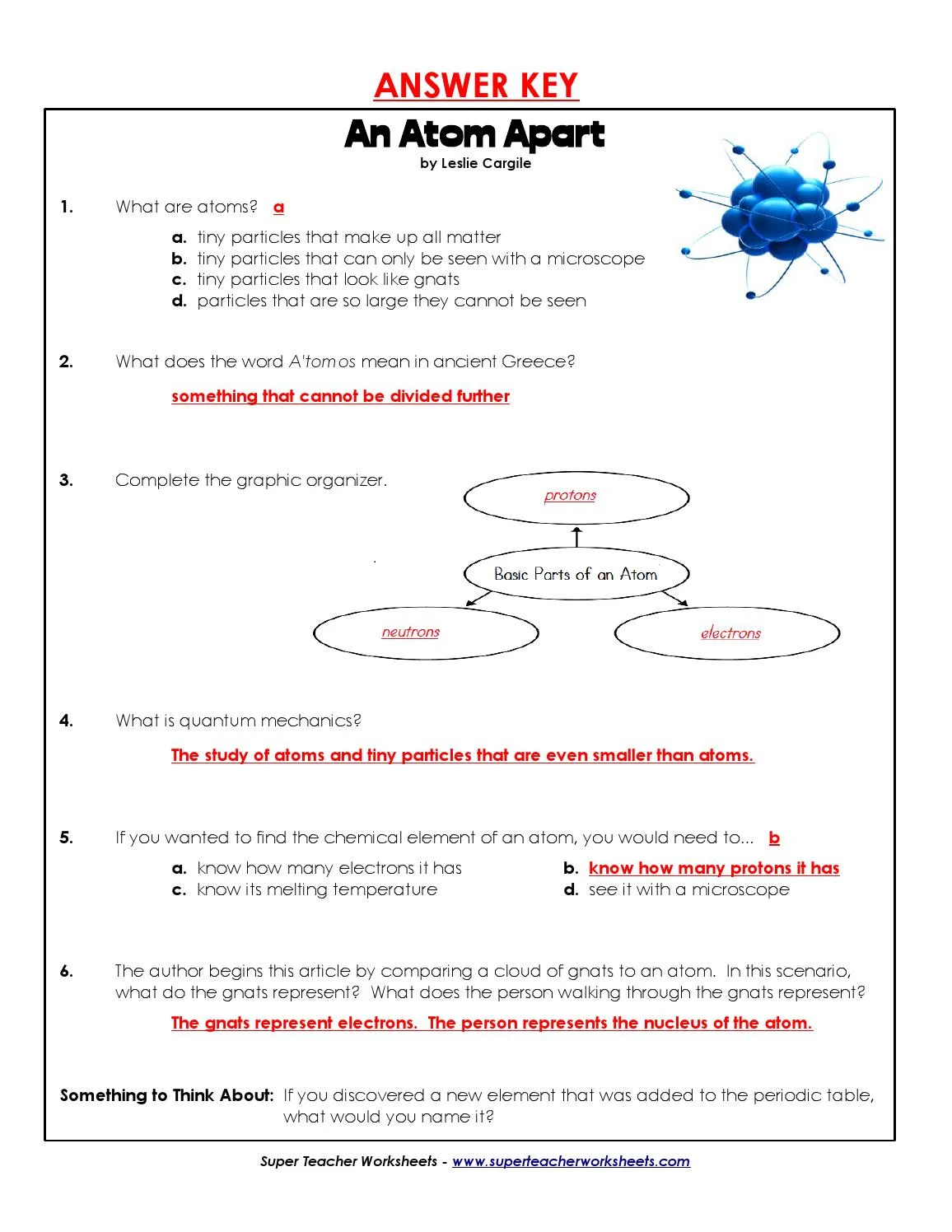Atoms were thought to be the smallest possible division of matter until 1897 when J. Thomson discovered the electron through his work on cathode rays. A Crookes tube is a sealed glass container in which two electrodes are separated by a vacuum. Dolby Atmos for content creators. Unlock new creative and business potential with the world’s leading immersive audio technology. Find out how other filmmakers, music artists, and game developers are using Dolby Atmos to create immersive worlds and multi-dimensional songs. Since each gram of matter is known to have about 10 24 protons, or about the same number of hydrogen atoms (since one hydrogen atom has only one proton), then the total number of hydrogen atoms.
Also found in: Thesaurus, Medical, Acronyms, Idioms, Encyclopedia, Wikipedia.
at·om
(ăt′əm)n.1.a. A part or particle considered to be an irreducible constituent of a specified system.
b. The irreducible, indestructible material unit postulated by ancient atomism.
3. Physics & Chemistrya. The smallest unit of an element, having all the characteristics of that element and consisting of a very small and dense central nucleus containing protons and neutrons, surrounded by one or more shells of orbiting electrons. Atoms remain undivided in chemical reactions except for the donation, acceptance, or exchange of valence electrons.
b. This unit regarded as a source of nuclear energy.
[Middle English attome, from Latin atomus, from Greek atomos, indivisible, atom : a-, not; see a-1 + tomos, cutting (from temnein, to cut; see tem- in Indo-European roots).]
American Heritage® Dictionary of the English Language, Fifth Edition. Copyright © 2016 by Houghton Mifflin Harcourt Publishing Company. Published by Houghton Mifflin Harcourt Publishing Company. All rights reserved.
atom
(ˈætəm) n1. (Atomic Physics)a. the smallest quantity of an element that can take part in a chemical reaction
b. this entity as a source of nuclear energy: the power of the atom. See also atomic structure
2. any entity regarded as the indivisible building block of a theory
3. (Philosophy) the hypothetical indivisible particle of matter postulated by certain ancient philosophers as the fundamental constituent of matter. See also atomism
4. a very small amount or quantity; minute fragment: to smash something to atoms; there is not an atom of truth in his allegations.
[C16: via Old French and Latin, from Greek atomos (n), from atomos (adj) that cannot be divided, from a-1 + temnein to cut]
Collins English Dictionary – Complete and Unabridged, 12th Edition 2014 © HarperCollins Publishers 1991, 1994, 1998, 2000, 2003, 2006, 2007, 2009, 2011, 2014
at•om
(ˈæt əm) n.
n. 1. the smallest component of an element having the chemical properties of the element, consisting of a positively charged nucleus of neutrons and protons that exerts an electrical attraction on one or more electrons in motion around it.

2. this component as the source of nuclear energy.

3. a hypothetical particle of matter so minute as to admit of no division.
4. anything extremely small; a minute quantity; speck; scintilla: not an atom of truth in that statement.
[1350–1400; < Latin atomus < Greek átomos literally, undivided =a-a-6 + -tomós divided <témnein to cut]
Random House Kernerman Webster's College Dictionary, © 2010 K Dictionaries Ltd. Copyright 2005, 1997, 1991 by Random House, Inc. All rights reserved.
at·om
(ăt′əm) The smallest unit of an element, consisting of protons and neutrons in a dense central nucleus orbited by a number of electrons. In electrically neutral atoms, the number of protons equals the number of electrons. Atoms remain intact in chemical reactions except for the removal, transfer, or exchange of certain electrons. See Note at subatomic particle.
The American Heritage® Student Science Dictionary, Second Edition. Copyright © 2014 by Houghton Mifflin Harcourt Publishing Company. Published by Houghton Mifflin Harcourt Publishing Company. All rights reserved.
Counting Atoms
atom
The smallest part of an element capable of taking part in a chemical change.
Dictionary of Unfamiliar Words by Diagram Group Copyright © 2008 by Diagram Visual Information Limited
| Noun | 1. | atom - (physics and chemistry) the smallest component of an element having the chemical properties of the element substance - the real physical matter of which a person or thing consists; 'DNA is the substance of our genes' chemical science, chemistry - the science of matter; the branch of the natural sciences dealing with the composition of substances and their properties and reactions natural philosophy, physics - the science of matter and energy and their interactions; 'his favorite subject was physics' elementary particle, fundamental particle - (physics) a particle that is less complex than an atom; regarded as constituents of all matter nucleus - the positively charged dense center of an atom isotope - one of two or more atoms with the same atomic number but with different numbers of neutrons monad - (chemistry) an atom having a valence of one chemical element, element - any of the more than 100 known substances (of which 92 occur naturally) that cannot be separated into simpler substances and that singly or in combination constitute all matter hydrogen atom - an atom of hydrogen molecule - (physics and chemistry) the simplest structural unit of an element or compound free radical, radical - an atom or group of atoms with at least one unpaired electron; in the body it is usually an oxygen molecule that has lost an electron and will stabilize itself by stealing an electron from a nearby molecule; 'in the body free radicals are high-energy particles that ricochet wildly and damage cells' |
| 2. | atom - (nontechnical usage) a tiny piece of anything grain - a relatively small granular particle of a substance; 'a grain of sand'; 'a grain of sugar' grinding - material resulting from the process of grinding; 'vegetable grindings clogged the drain' material, stuff - the tangible substance that goes into the makeup of a physical object; 'coal is a hard black material'; 'wheat is the stuff they use to make bread' chylomicron - a microscopic particle of triglycerides produced in the intestines during digestion; in the bloodstream they release their fatty acids into the blood flyspeck - a tiny dark speck made by the excrement of a fly identification particle - a tiny particle of material that can be added to a product to indicate the source of manufacture |
Based on WordNet 3.0, Farlex clipart collection. © 2003-2012 Princeton University, Farlex Inc.
atom
nounparticle, bit, spot, trace, scrap, molecule, grain, dot, fragment, fraction, shred, crumb, mite, jot, speck, morsel, mote, whit, tittle, iota, scintilla(rare)one carbon atom attached to four hydrogens
Collins Thesaurus of the English Language – Complete and Unabridged 2nd Edition. 2002 © HarperCollins Publishers 1995, 2002
atomzrnko
atomi
atom
atóm, frumeindsnefill
原子元素
atomasatominė energijaatominisdalelė
atom
อะตอม
nguyên tử
atom
[ˈætəm]A.N2. (fig) → pizcaf
there is not an atom of truth in it → eso no tiene ni pizcade verdad
if you had an atom of sense → si tuvieras una gota de sentido común
to smash sth to atoms → hacer algo añicos
there is not an atom of truth in it → eso no tiene ni pizcade verdad
if you had an atom of sense → si tuvieras una gota de sentido común
to smash sth to atoms → hacer algo añicos
B.CPDatom bombN → bombafatómica
atom smasherN → aceleradorm de partículasatómicas, rompeátomos m inv
atom smasherN → aceleradorm de partículasatómicas, rompeátomos m inv
Collins Spanish Dictionary - Complete and Unabridged 8th Edition 2005 © William Collins Sons & Co. Ltd. 1971, 1988 © HarperCollins Publishers 1992, 1993, 1996, 1997, 2000, 2003, 2005
atom
[ˈætəm]n(PHYSICS) → atomematom bomb n(mainly British) → bombefatomiqueCollins English/French Electronic Resource. © HarperCollins Publishers 2005
atom
n(fig)to powder something into atoms → ; not an atom of truth → kein KörnchenWahrheit
Collins German Dictionary – Complete and Unabridged 7th Edition 2005. © William Collins Sons & Co. Ltd. 1980 © HarperCollins Publishers 1991, 1997, 1999, 2004, 2005, 2007
atom
[ˈætəm]n → atomo (fig) not an atom of truth → nemmeno un pizzico di veritàCollins Italian Dictionary 1st Edition © HarperCollins Publishers 1995
atom
(ˈӕtəm) noun1. the smallest part of an element. atoom ذَرَّه атом átomo atom das Atom atom άτομοátomo aatom اتم atomi atomeאטום परमाणु atom atom atom atóm, frumeind atomo 原子 원자 atomas atoms atom atoomatomatom اتوم átomo atom атом atóm atom atom atom อะตอม atom 原子 атом کسی عنصر کا سب سے چھوٹا ذرہ nguyên tử 原子
2. anything very small. There's not an atom of truth in what she says. greintjie مِقْدار ضَئيل جِداً частица átomo zrnko das Körnchen gran ίχνος, ψήγμα ápice, pizca, gota kübe ذره؛ خرده hitunen parcelleגרעין रत्ती भर trunka parányi sedikit snefill briciola 微量 극히 작은 것 dalelė druska sedikit pun greintjefnugg, prikkodrobina ذره átomo pic, strop капля zrnko, kúsok kanček zrnce smula, dugg, uns ปริมาณที่น้อยมาก zerre 絲毫 краплина انتہائی چھوٹا vật nhỏ 微粒
aˈtomic (-ˈto-) adjectiveAtoms Miss E. Mac's Classics
atomies ذَرّي атомен atômico atomový Atom-... atom- ατομικόςatómico aatom(i)- اتمی atomi- atomiqueאטומי, גרעיני परमाण्विक atomski atom- dari atom atóm-, kjarnorku-; örsmár atomico 原子の 원자의 atominis atoma- atom atoom-atom-atomowy اتومی atómico atomic атомный atómový atomski atomski atomisk เกี่ยวกับปรมาณู atomla ilgili 原子的 атомний ایٹمی thuộc nguyên tử 原子的
atom(ic) bomb a bomb using atomic energy. atoombom قُنْبُلَه ذَرِّيه атомна бомба bomba atômica atomová bomba die Atombombe atombombe ατομική βόμβαbomba atómica aatomipomm بمب اتمی atomipommi bombe atomique פְּצָצָה אָטוֹמִית परमाणु बम atomski atombomba bom atom kjarnorkusprengja bomba atomica 原子爆弾 원자 폭탄 atominė bomba atombumba bom atom atoombomatombombebomba atomowa د اتوم بمب bomba atómica bombă atomică атомная бомба atómová bomba atomska bomba atomska bomba atombomb ระเบิดปรมาณู atom bombası 原子彈 атомна бомба ایٹمی بم bom nguyên tử 原子弹
atomic energy very great energy obtained by breaking up the atoms of some substances. atoomenergie طاقَة ذَرِّيه атомна енергия energia atômica atomová energie die Atomenergie atomenergi ατομική ενέργεια energía atómica/nuclear aatomienergia انرژی اتمی atomienergia énergie atomique אֶנֶרגיָה גַרעִינִית परमाणु ऊर्जा atomska energija atomenergia tenaga atom kjarnorka energia atomica 原子力 원자 에너지 atominė energija atomenerģija tenaga nuklear atoomenergieatomenergi energia atomowa اتومی انرژی energia atómica energie atomică атомная энергия atómová energia atomska energija atomska energija atomenergi พลังงานอะตอม atom enerjisi 原子能 атомна енергія ایٹمی توانائی năng lượng nguyên tử 原子能
atomic power power (for making electricity etc) obtained from atomic energy. atoomkrag قُوَّه ذَرِّيه атомна енергия poder atômico atomová energie die Atomkraft kernekraft; atomkraft ατομική ενέργεια energía nuclear aatomienergia اانرژی حاصل از فرآیند اتمی atomivoima énergie nucléaire כּוֹח גַרעִינִי परमाणु ऊर्जा atomska snaga atomenergia tenaga nuklir kjarnorka energia nucleare 原子力 (発電) 원자력 atominė energija atomenerģija kuasa nuklear atoomkracht kjernekraft, atomkraft energia atomowa هغه انرژی چی له اتوم څخه لاسته راغلی وی poder atómico energie atomică/nucleară атомная энергия atómová energia nuklearna energija atomska snaga atomkraft พลังงานปรมาณู atom gücü 原子力 атомна електростанція; атомна енергетика ایٹمی قوت năng lượng nguyên tử 原子力,原子动力
Kernerman English Multilingual Dictionary © 2006-2013 K Dictionaries Ltd.
atom
→ ذَرَّة atom atomAtomάτομοátomo atomiatome atomatomo 原子 원자atoomatom atomátomoатом atom อะตอมatom nguyên tử
atomátomoатом atom อะตอมatom nguyên tử
Atmos
原子Multilingual Translator © HarperCollins Publishers 2009
at·om
English-Spanish Medical Dictionary © Farlex 2012
Want to thank TFD for its existence? Tell a friend about us, add a link to this page, or visit the webmaster's page for free fun content.
Link to this page:
Atmos Energy
